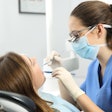
Now may be one of the best times for doctors with dental equipment and business car needs to take advantage of lower prices, record low interest rates, and tremendous tax advantages.
The dental community can expect to see considerably higher prices, interest rates, inflation, and taxes starting in 2010, which will directly affect the ability to purchase new equipment and company vehicles. But for 2009, the U.S. government is attempting to stimulate the economy by adjusting tax laws, specifically section 179 of the Internal Revenue Service (IRS) federal tax code, allowing a significant increase in the immediate depreciation of certain equipment purchases. (For detailed information, visit the section 179 Web site.)
In the past, when you bought equipment for your practice, you were able to write it off a little at a time through depreciation. If you spent $50,000 on new equipment, you wrote off $10,000 a year for five years.
While this was better than nothing, most dentists would prefer to write off the entire purchase price for the year in which they bought the equipment, especially if the practice has been profitable and would benefit from tax relief. Section 179 now allows dentists to deduct the full purchase price of qualifying equipment purchased during this tax year.
There are some limits, however. In 2008, dentists could elect to immediately expense up to $133,000 annually for new equipment. To stimulate the economy, the federal government increased the total amount allowable in 2009 to $250,000. In addition, purchases exceeding $250,000 can qualify for a one-time bonus depreciation of 50% on the amount that exceeds the limit, up to $800,000. Above that, you can take normal depreciation on the rest (i.e., any additional purchasing costs must be depreciated over the remaining life of the equipment, which is typically five to seven years).
Starting in 2010, the $250,000 amount is expected to return to no more than $133,000, and the 50% allowance may go away completely.
How to qualify
|
Tips for negotiating a purchase Here are some tips to consider when making an equipment purchase:
|
All dentists who purchase or finance less than $800,000 in business and dental equipment qualify for the section 179 deduction, but the equipment must be purchased and used between January 1, 2009, and December 31, 2009.
Equipment that generally qualifies includes the following:
- Dental equipment (with a life expectancy of more than one year and a cost of $5,000 or more)
- Business vehicles (see below)
- Computers and software
- Office furniture and equipment
- Leasehold improvements
- Equipment that is purchased for business and personal use (deduction based on the percentage of time the equipment is used for business purposes)
Financed and leased equipment also qualify for the section 179 deduction. The advantage to leasing or financing equipment and then using section 179 is that you can deduct the full amount of the equipment without paying the full amount this year. Your savings in taxes can actually exceed the payments, making this a great deduction.
The main benefit of leasing is that you can still take full advantage of the section 179 deduction with the added benefit of making smaller payments. With a nontax capital lease, you can acquire and write off $250,000 worth of equipment this year, without actually spending $250,000. Examples of nontax capital leases include a $1.00 buyout and a 10% purchase upon termination lease. You may also obtain an equipment loan using an equipment finance agreement and still take the section 179 deduction.
Other section 179 details to consider:
Section 179 is taken on an item-by-item basis. You do not have to use it if you do not want to.
If you want to take advantage of the section 179 deduction for 2008, you may amend that year's return; the final due date for a 2008 filing is October 15, 2009.
With regard to new car purchases, prior to 2009, the depreciation limit was $2,960 for cars (adjusted to the percentage the vehicle was used for business). In 2009, the new law allows for an additional $8,000 in first-year depreciation limits, therefore increasing the limit to $10,960. For sport utility vehicles exceeding 6,000 lb, the limit increased to $25,000. These limits are expected to return to 2008 levels in 2010.
The bottom line is this: If you are a practice owner who has purchased or leased equipment in 2009 and placed it into service during the calendar year, you can elect to take the section 179 deduction. You elect the deduction when you file your tax return for the year, whether you are filing on time or receiving an extension. To take the section 179 deduction, fill out Part 1 of IRS Form 4562 and attach it to your tax return. To download the form, visit the section 179 Web site.
Paul Pavlik, D.D.S., is founder and president of Tracker Enterprises, a practice management organization for dentists and other business professionals. His experience includes more than 35 years as a dentist, speaker, author, researcher, and practice management coach. To receive a complimentary issue of his monthly practice management e-newsletter, Tracker Tips, send a permission e-mail to [email protected]. You can also reach him at [email protected].
The opinions expressed are those of the author. All information contained herein is intended to be general in nature and should only be considered after consulting an appropriate expert, including an attorney and/or accountant.
Copyright © 2009 DrBicuspid.com


















